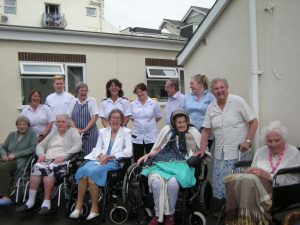
People who live to very old age are generally the fittest, it’s understood. And according to a study in the Lancet [i] 20 percent of those aged 85 years and older (the fastest growing section of the population) live independently and free from disability. It’s toward the end of their lives that health deteriorates, with men having ‘substantial’ care needs for two to three years, and women for three years.
A separate report carried out for BBC Radio 4’s ‘You and Yours’ programme by property consultants JLL, found that over the next ten years the pressure for more care home beds will rise as the older population swells with 2.5 million more over 65s, calling for an extra 71, 250 care home places by 2025.
The problem is that for the past 15 years only 7,000 new care home places have been made available each year, while for the last three years 21,500 care home places have disappeared as care homes have closed.
The impact will be worst in the north of England and in poorer parts of the country, where people needing care have no savings or assets, and rely on local councils to pay their fees. And here’s the rub – Councils are currently paying an average of £100 a week below the actual cost of care, and providers can’t cope with continuing losses indefinitely. Hence the closures… (We are ever grateful to our supporters and to God for enabling us for over 210 years – the Pilgrims’ Friend Society is truly an example of His grace.)
For some time now the Department of Health has directed Councils to fund people for care in their own homes (domiciliary care), rather than in care homes, even for quite complex cases. Of course, most people would prefer to stay in their own homes, but increasing frailty can be isolating and the effects of loneliness are debilitating.
 So it was good to hear about a church befriending programme that is making a difference in the North of England. Two churches are working together. The community worker told me that in her church 20 volunteers came forward when she did a ‘shout out’. Doors are being flung ‘wide open’ by Social Services and other organisations, without the churches obscuring their Christian values, although they’re clear that they are ‘befriending’ and not ‘proselytising’. The work is growing. I’ve asked Beverley (name changed) to let me have more information about the programme, including how it works and how it was set up, so we can share it with other churches. She’s so busy that it’s kind of her to agree, and when we have it we’ll publish it widely. Email if you’d like to hear about it.
So it was good to hear about a church befriending programme that is making a difference in the North of England. Two churches are working together. The community worker told me that in her church 20 volunteers came forward when she did a ‘shout out’. Doors are being flung ‘wide open’ by Social Services and other organisations, without the churches obscuring their Christian values, although they’re clear that they are ‘befriending’ and not ‘proselytising’. The work is growing. I’ve asked Beverley (name changed) to let me have more information about the programme, including how it works and how it was set up, so we can share it with other churches. She’s so busy that it’s kind of her to agree, and when we have it we’ll publish it widely. Email if you’d like to hear about it.
Befriending an older person and helping in small ways helps them stay physically and mentally, fitter for longer. Reports show that regular, kind care helps keep them out of A & E units, in the winter time especially.
It’s something to pray about!
[i] http://www.thelancet.com/journals/lancet/article/PIIS0140-6736(17)31575-1/fulltext














